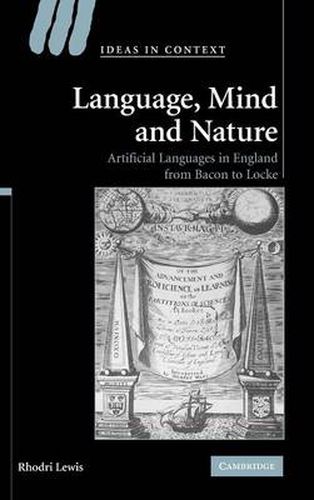Readings Newsletter
Become a Readings Member to make your shopping experience even easier.
Sign in or sign up for free!
You’re not far away from qualifying for FREE standard shipping within Australia
You’ve qualified for FREE standard shipping within Australia
The cart is loading…






In the attempt to make good one of the desiderata in Bacon’s Advancement of Learning, a cohort of seventeenth-century philosophers, scientists, schoolmasters, clergymen and virtuosi attempted to devise artificial languages that would immediately represent the order of thought. This was believed directly to represent the order of things and to be a universal characteristic of the human mind. Language, Mind and Nature is a 2007 text which fully reconstructs this artificial language movement. In so doing, it reveals a great deal about the beliefs and activities of those who sought to reform learning in seventeenth-century England. Artificial languages straddle occult, religious and proto-scientific approaches to representation and communication, and suggest that much of the so-called ‘new philosophy’ was not very new at all. This study broke important ground within its field, and will interest anyone concerned with early modern intellectual history or with the history of linguistic thought in general.
$9.00 standard shipping within Australia
FREE standard shipping within Australia for orders over $100.00
Express & International shipping calculated at checkout
In the attempt to make good one of the desiderata in Bacon’s Advancement of Learning, a cohort of seventeenth-century philosophers, scientists, schoolmasters, clergymen and virtuosi attempted to devise artificial languages that would immediately represent the order of thought. This was believed directly to represent the order of things and to be a universal characteristic of the human mind. Language, Mind and Nature is a 2007 text which fully reconstructs this artificial language movement. In so doing, it reveals a great deal about the beliefs and activities of those who sought to reform learning in seventeenth-century England. Artificial languages straddle occult, religious and proto-scientific approaches to representation and communication, and suggest that much of the so-called ‘new philosophy’ was not very new at all. This study broke important ground within its field, and will interest anyone concerned with early modern intellectual history or with the history of linguistic thought in general.